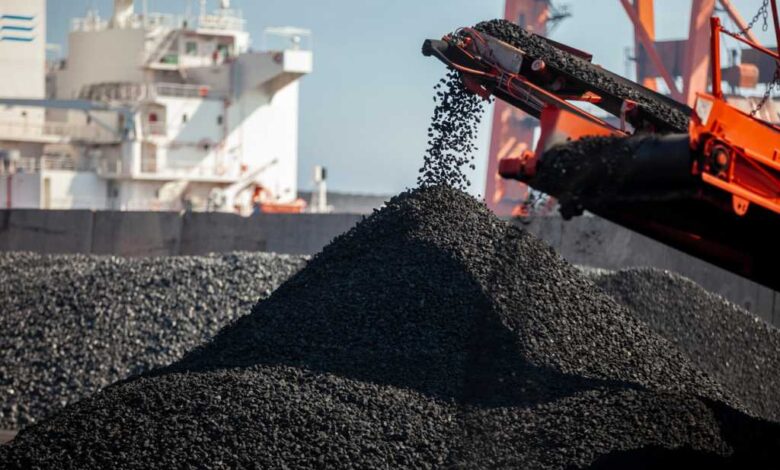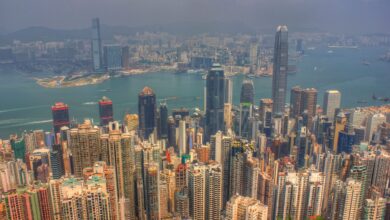Digital mining for sustainability in a low-carbon economy

Since the Paris Agreement was signed in 2015, businesses have been taking part to contribute in pursuing net zero and achieve emission reduction targets. For Petrosea — a multi-disciplinary mining, infrastructure, and oil and gas services company in Indonesia — attention shifted to pursuing more sustainable operations with lower carbon emissions.
A complex undertaking for mining concerns
In Petrosea’s case, decarbonizing the company’s large fleets and fossil fuel-dependent heavy equipment units and transitioning to renewable energy meant investing in significant upfront capital. Meanwhile, the development of commercially feasible technology solutions to accomplish these tasks had been slow.
Furthermore, measuring and monitoring ESG performance required consolidating data from various instruments and functions in diverse locations. Sustainability performance information could only be gleaned by using a manual system to collect, consolidate, and analyze data.
The limited and fragmented ways of gathering and processing insight were consuming valuable time – eating up resources and limiting the opportunity for Petrosea to operate more sustainably.
In addition, Petrosea’s operations had to be conducted in a manner safe for all employees. Consequently, numerous digital use cases have been implemented within the organization.
The company had little choice but to adopt a digital strategy to realize its sustainability aspirations in the most cost-effective and time-efficient manner.
Hence in 2018, Petrosea began launching a corporate-wide digital transformation initiative that would result in streamlining and promoting operational efficiency – which also included Minerva Digital Mining, SHEPRO, and a proof of concept of a unified platform for monitoring its ESG performance.
Remodeling the future
Based in Bintaro, Banten, Indonesia, PT Petrosea Tbk has been specializing in pit-to-port mining projects, integrated engineering, procurement, and construction on the Indonesian archipelago for more than 50 years.
Operating by what it calls its 3D approach – for diversification, digitization, and decarbonization – along with the 3Ms – for measure, monitor and mitigate – the company is justifiably proud of its devotion to operational excellence, health, safety, quality, and environmental management.
But it took the company a few years to get to this point.
Petrosea created a robust internal digital ecosystem by establishing a Transformation Office directorate to take charge of its corporate digital transformation initiatives. These initiatives included exploring and engaging in technology solutions, such as those from Enterprise Resource Planning (ERP) software leader SAP. In fact, SAP had been providing solutions to Petrosea since 2014 to support transactions and business processes in finance, supply chain management, and plant maintenance, among other areas.
SAP was selected based on its technological capabilities and compatibility with Petrosa’s business case. But the new age cloud solution would be different from everything that came before. The Internet of Things (IoT) – sensors and other technologies attached to objects – advanced analytics, and machine learning (ML) would all be applied to capture data.
The new, digital mining system – an end-to-end technology guiding users to the solution necessary for a specific challenge – would optimize fleet management, reducing truck allocations and fuel consumption while analyzing road conditions in real-time.
Managing its operational footprint
In December 2022, Petrosea’s sustainability digital dashboard proof of concept platform was fully completed, providing users with a complete overview of the company’s ESG performance in such areas as carbon emissions, waste, water use, health, and safety.
“Tapping into various digital solutions has managed to bring in connectivity, insights and impacts to support our aspiration to be a more resource efficient company with sustainability mindset in our day-to-day operation. This effort was also recognized by the World Economic Forum as Indonesia’s Global Lighthouse Network in 2019,” said Sreecharan Nagarkal Venkatakrishnaiah, the company’s chief transformation officer.
The platform includes a dashboard that processes data even from project sites that were previously difficult to monitor, while sensors are used to collect information from heavy equipment units, enabling planners to make more accurate forecasts of conditions, accurate decisions, and critical interventions.
The results were staggering: In a mining pit in 2020, productivity increased by 5 percent, and 782,188 liters of fuel and 1,595 tons of carbon emissions were saved in a year. Overall, in addition to decreasing costs and preventing waste, the company used 6 percent less fuel, a reduction estimated to eliminate $4.9 million in costs.
Today, ESG data is consolidated, synthesized, analyzed, and visualized through a single, accessible source. ESG performance information can now be accessed at twice the speed, enabling better insights and decision making. SHEPRO has also been an instrumental health and safety excellence digital platform for maintaining a zero-fatality rate over the last three years.
The awareness gained by the development of the platform has transformed the organization as it embarks on new initiatives embracing the sustainable mindset, such as moving the database from an on-premises server to the cloud, which will establish a more sustainable IT environment with fewer carbon emissions.
For its role harnessing the power of technology to drive sustainability, Petrosea took first place in the “Services Supernova” category for mining at the 2023 SAP Innovation Awards. The yearly ceremony celebrates organizations using SAP technologies to improve both business and society. You can read all about their amazing accomplishment that earned them this award in their Innovation Awards pitch deck.



